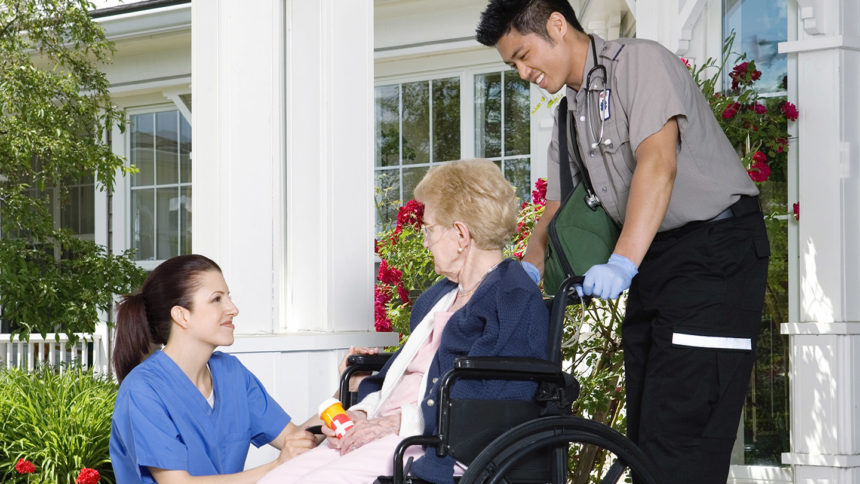
A new study across 16 Missouri nursing homes will examine whether transitioning from fax and voicemail communications to a text-based platform helped to reduce avoidable resident hospitalizations.
Investigators from the University of Missouri received a $1 million federal grant to analyze the effectiveness of the HIPAA-compliant Mediprocity text messaging platform when it was used by nursing home staff during an earlier study.
Like many nursing homes in the United States, staff at the participating facilities traditionally relied on faxes and voicemails to connect with offsite clinical colleagues and residents’ family members while making care decisions, the researchers said.
Doing so can slow down communications and lead to unnecessary transfers, said researcher Kimberly Powell, PhD, RN, of the MU Sinclair School of Nursing.
Missed opportunities
“By the time they hear back, there has already been a missed opportunity for early intervention and the resident must get transferred to the hospital because it is too late to intervene,” she said in a statement accompanying the grant announcement.
The text messaging platform allowed study participants to communicate via text with clinicians, pharmacies and residents’ families.
With text messages, “bedside nurses can contact all parties involved instantly, which speeds up decision-making and allows for earlier interventions so there is the potential for the hospital transfer to be avoided,” Powell said. “It’s an easy, convenient, low-cost solution to a serious problem.”
By learning what worked and what didn’t, the new study may help nursing homes nationwide to adopt similar technology and thereby improve care quality, the researchers added.
QI study
The Mediprocity platform was originally introduced in a study that was part of the Missouri Quality Improvement Initiative (MOQI), a $35 million program funded by the Centers for Medicare & Medicaid Services. The MOQI was launched in 2012 and aimed to reduce hospitalizations by placing full-time advanced practice registered nurses in the 16 nursing homes. In its initial phase, avoidable resident hospitalizations were reduced by 50%, according to the Agency for Healthcare Quality and Research.
The MOQI was later transferred to NewPath Health Solutions, LLC, and has expanded into five nursing homes in Florida and six more nursing homes in Missouri.



